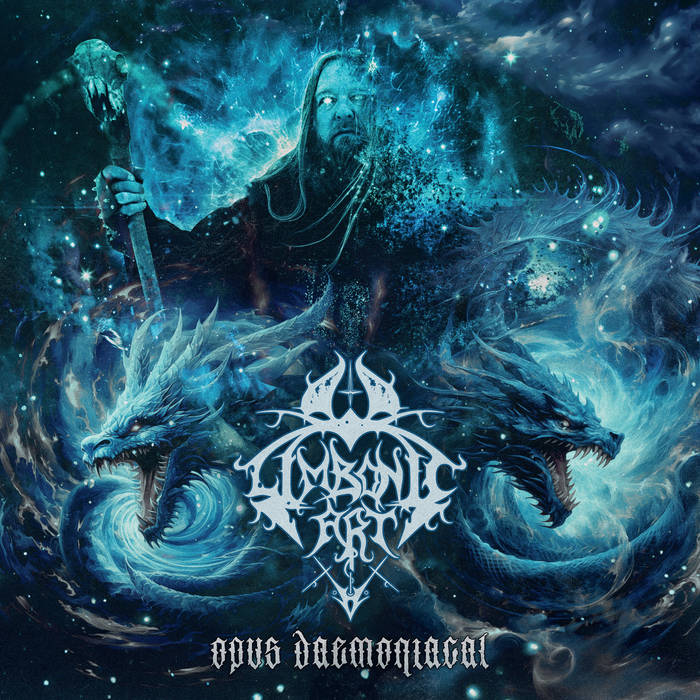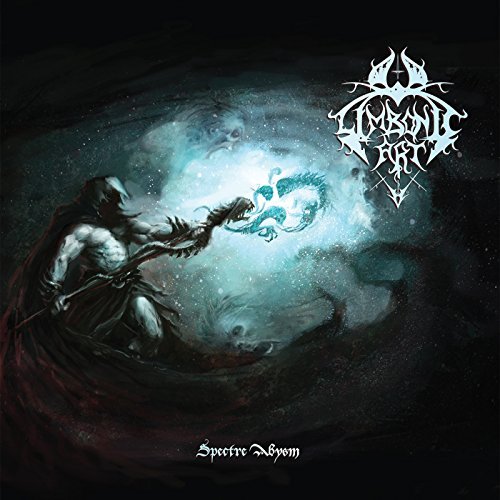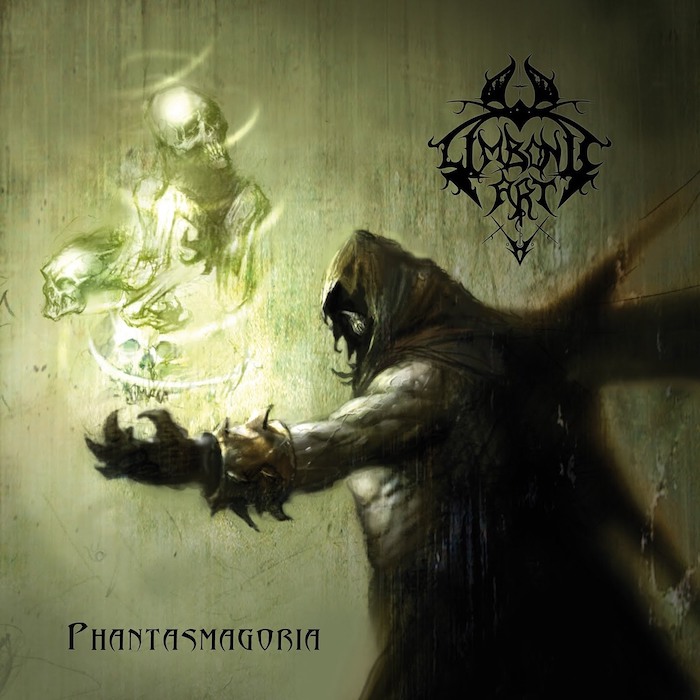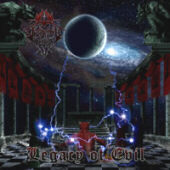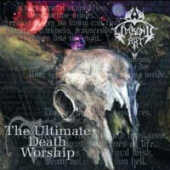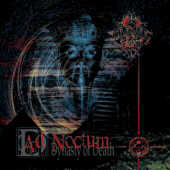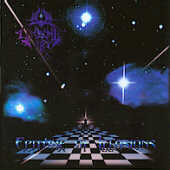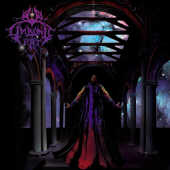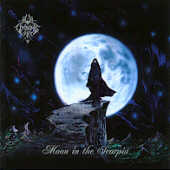Limbonic Art - Interview
In this ever-expanding chasm of dark lunar magic and otherworldly evil, always drifting into the forbidden layers of the deep cosmos, we still worship the old deities that came before us and still successfully reign in supreme darkness. In this turbulent year of 2024, we would witness the return of many respected and beloved veterans in extreme metal, including the main subject of this topic, the Norwegian band Limbonic Art. Over the years, Limbonic Art has remained one of the essential symphonic black metal bands that still carry the sacred flame and cast an equally powerful magic since the early beginnings, from the phenomenal debut album "Moon In The Scorpio" and onwards. While many original bands in this subgenre branch started to commercialize their sound and expand to different territories where many would not tread, Limbonic Art has remained faithful to its roots and never betrayed its foundation, while also maintaining the musical edge of their master crafted songwriting. This year would be met with their new and official ninth full-length album "Opus Daemoniacal" under the banner of the Greek label Kyrck Productions & Armour, so I figured it was a good time to exchange some words with the band's founding and only original member, Vidar Jensen, aka Daemon. This interview explores the band's core foundation, with the main focus on the release of the new album "Opus Daemonical", while also getting to know more about the legend himself, wondering what is it like for him to be the band's artistic mind over the last 3 decades, with such everlasting and burning passion for this kind of music. Please join me on this journey where I discuss these aforementioned subjects with the lone king who sits upon his throne, the heart and soul of Limbonic Art, Daemon. Embrace the Darkness!
Vladimir

Greetings Daemon! A heartwarming welcome to you. How are you doing today brother?
Greetings brother, and thanks for your interest in Limbonic Art! Today, there is another tropical streak here in the mountains where I live, so I just seek solace in the shadows and contemplate on various things. I am not a specific fan of extreme summer heat, so my days become rather inactive. Even though sunlit days can also have its compelling moments I generally favor colder weather conditions. Like a couple of days ago when dark ominous clouds abruptly assembled on the horizon as rain poured from the sky. A minor storm came out of nowhere, and in the midst, the Deity of Thunder spoke with a voice that made the hills tremble. Accompanied by tremendous flashes of lightning it was altogether an astounding spectacle. Then it all echoed further into the canyons beyond. It is quite an inspiration when it transpires, and conditions can change rather rapidly in the remote highlands. Makes it challenging as well as fascinating.
I recently listened to the new album "Opus Daemonical", and as I stated in my review, it's a really good album that checks all the marks for me in terms of atmosphere, musicality and the magic of Limbonic Art as I expected. What was the general direction you were going with this new album, and what did you want to achieve this time differently than "Spectre Abysm" from 2017?
I mainly wanted to elevate the new musical ideas to the next level, and I started the process by committing a massive amount of time exploring the "Drumkit from Hell" database. It was an ultimate pursuit to perfect the drums and experiment with several techniques, heavily inspired by protagonists of metal like Dave Lombardo, Gene Hoglan, Igor Cavalera, Juergen "Ventor" Reil, Atomic Steif, Tom Hunting, Chris Witchhunter, Steve Asheim (Deicide) and of course Hellhammer (Mayhem) who always has been a true guiding star for Limbonic Art. We even wrote him a letter in the initial years requesting him to join us. But, since we did not hear from him, we just continued with the drum computer, and ever since it became a tradition, I guess. Anyhow, as the groundwork of the drums started to unfold, the configuration for other instruments became more and more discernable to me. I recorded all basic ideas for the guitars, sometimes even several layers, but it was merely to conjure them later in the process. I even got perceptions regarding the vocal arrangements, from single lines of lead vocals to huge majestic choir sections. Within the timespan of two months, I had conceived 10 new songs for Limbonic Art. It was just amazing, because the reason why I arrived at this studio/rehearsal room in the first place, was to crash there for the duration of some personal distress that I went through at the time. I had no intent to start another album production, furthermore I had not a single new idea to work with. My head was just chaos and long had I suffered from a terrible writer's block. It was primarily to kill some time and endure agony that I began exploring the drum computer. In this process I smoked a lot of weed to stabilize my evil moods, and unexpectedly the spirit of creation woke up from its slumber. Sadly, the conditions in this amateur studio were somewhat unbearable, with intrusive people frequently messing about, wasting my time. But I was a guest in their abode and I did not pay any money for occupying space there during daytime, so I just let it slide for a while. Yet, I realized soon enough that for me to finish my new masterpiece, I had to prioritize a more professional environment elsewhere. The studio building also suffered a major water leakage from the roof, and all the equipment had to be removed before renovation. I took it as a sign it was time to move on. I secured all my files on an external hard disc and contacted a more professional studio to continue my work. There I received a crash course by the studio owner in how to record on his slightly different system, so I could work alone and undisturbed. So, I kept all the drums as they were, and recorded all the guitars from scratch. Then I did the bass and all the distinctive vocals. It is safe to say that all the things that materialized during this process, helped shaping how "Opus Daemoniacal" finally turned out. I managed to utilize the energies, no matter how dark and destructive, and converted it into something constructive. Being that said, the album "Spectre Abysm" was also conceived during times of personal distress. And more than once it was on the brink of total collapse. I started up in one amateur studio with all kinds of unforeseen obstructions. The hard disc broke down so the owner had to install all the programs from scratch, causing major delays. Then he had an electrical fire damaging some important studio equipment, again causing further delays. Domestic problems with his wife, kids and regular job, even my recurring health issues made its harmful impact, with the result of overstepping the label's deadline by almost two years. At one point I had to make an executive decision and secure all files on an external hard disc and contact another studio. Only to discover severe digital errors in the transfer, and files that did not open nor synchronize at all. I lost an insane number of files with keyboard orchestration, that I had spent numerous hours programming to match the earlier sound of Limbonic Art. It was layer upon layer with symphonic orchestra, all went to hell. And because I was already way beyond the label's deadline, there was no time to reproduce the synths. Which was a shame really, because the album definitely lost some of the potential. But still a cool album, I think. Tribulation seems to have followed my latest productions, and there are many similarities between "Spectre Abysm" and "Opus Daemoniacal". Except, this time I did not even bother to compose any keyboards, I took it as a challenge to strip away all such implements and let the metal music speak for itself.
Considering that the album has many qualities, is there anything particular about this new album that stands out to you personally? Something that you are most proud of?
I am extremely proud of the whole album. I trusted in my primal instincts, seized the power from the great beast, I endured agony and I stand triumphant! In my opinion it is the most pre-eminent album in my career.
There are a couple of tracks on this album that really stand out to me, examples like 'Consigned To The Flames', 'The Wrath Of Storms', 'Vir Triumphalis' and especially the final 12-minute track 'Ars Diavoli'. I personally think you really pulled it off with the good use of progressive and complex songwriting, without feeling monotone or one-dimensional. What can you tell me about this track and what sort of "territories" or "dimensions" did you want to explore with it?
The track 'Ars Diavoli' is like my own version of "Dante's Inferno". A pilgrim that wanders in utter emptiness, challenging the darker aspects of the soul. A journey into the murky depths of the abyss. I recall from the initial process of the album, both during my daytime sessions and later on my ritualistic excursions in the nearby forest at night. I felt the presence of a darker entity following me, speaking to my subconsciousness and guiding my dreams. I embraced the darkness and submitted to its unseen powers as I traversed the dismal deserts. I reached out into the unknown and connected with something in the void. Something not of this earth. It became my phantom escort through the labyrinth of thoughts. Opening my mind!
In the case of 'Ars Diavoli', it's no surprise that a track longer than 10 minutes manages to stay strong and interesting for so long, because there are a plenty of songs in the band's discography that are ever longer than that and all of them do a good job at keeping the listener's constant attention. Is the work on these long tracks something that you always like to do or does it just come out naturally and unplanned?
'Ars Diavoli' was initially three separate parts that eventually merged into one. I recorded bits and pieces with guitar as the ideas arrived to me. Just saving them as potential material for later. It was perhaps one of the last songs that I completed. While listening I noticed that it was basically different versions of the same riff, and when I started experimenting putting these bits and pieces together, it became obvious that they formed a unique symphony. For some time, it was mainly the fast themes that formed the song, and I was actually quite satisfied with that. It was already a decent length for the song. But, in a dream I then had this vision of souls falling into the hellish abyss. I even heard the screaming voices echoing while they descended deeper and deeper. As I woke up from the dream, I realized it was the final piece missing to that song and it would also serve as the album's outro. A lot of my music manifests itself unexpectedly. All riffs are like pieces of puzzle that every now and then create huge pictures.
In terms of the overall vibe of the album, it's very rich and vast with a good variety of ideas that range from cosmic to draconic to demonic and even epic. I even felt like there was some Lovecraftian atmosphere to it as well, but maybe that is just because the album is really good at playing with your imagination. Were there some particular influences from literature or any other media that contributed to this dynamic flow of "Opus Daemonical"?
Not really. When I composed the material, I essentially just isolated myself from the real world and delved into a different universe. Often it feels like I am wandering in between worlds while the music guides me. I never read any kind of literature, but I am an avid movie viewer. So, it is plausible that some inspiration has emanated from there.
One thing that really stands out with me about Limbonic Art is that the band is now over 3 decades old and after so many years fans are still ensured to have a nice thrill-ride with each new album that comes. "Opus Daemonical" quality holds up in terms of its songwriting, because it manages to provide some fresh ideas and interesting moments that give the fans a bit of everything to enjoy. How do you manage to work so effectively and focused, both from a standpoint of a songwriter and a musician? Do you have any kind of routines that help you on a daily basis or before writing a new album?
I only try to stay true to what I do, and Limbonic Art is my lifework, a huge part of who I am. I never felt the need to alter anything in terms of reaching more fame or earn more money. I am what I am, only older and more affluent in experiences. I always had a unique insight in music, not only metal music, but metal is what has always been the most essential in my life. I have however noticed that adversity in life can bring out the best and the worst in me as an artist. And somehow, I believe that a true artist must suffer to be able to create true art. Only then the true essence of darkness is reflected. You must experience hell and understand hell, to be able to write about it.
I am sure you are well aware about the recognition and status that Limbonic Art has in the world of symphonic black metal, because it's often regarded as a one of the key bands in this particular branch that expanded and influenced the subgenre. A significant thing about Limbonic Art's approach is that there is always a certain edge to the music, never straying off the path as some of the other symphonic black metal bands that gradually lost their magic by becoming too fancy, too commercial or too polished. What is your overall take on this subject? Do you always try to stay faithful and cautious to the foundation of Limbonic Art?
I think I answered the above. But yes, I believe that staying faithful, true and cautious is essential for survival. Not only in music but in everything you do in life. I create the musical art that I like, first and foremost, and if others can relate to that and feel entertained by that, it's fucking brilliant. But it is impossible to satisfy all listeners. So, I keep it real according to my own principles.
Now on the more positive side of this subject, I am curious to know if you manage to stay updated with the new coming contemporary bands in the branch of symphonic black metal, or just black metal in general? Have any new bands or new albums caught your attention?
I really don't pay any attention to what's new out there. I'm sure there are many great artists that make quality music, but I predict they are more appropriate for the younger generation of metalheads. I am not a specific admirer of modern music production. Also, in a world swarming by bands who repeatedly rip off their old-time heroes, the genre is doomed to deteriorate. Too many bands sound too identical. It's basically copies of copies. The only thing different is the sound productions and I am not convinced it is for the better. I rather listen to music from the past, the old ones are always the best in my opinion.
You have come a long way since the release of your epic and phenomenal debut album "Moon In The Scorpio" back in 1996, which to this day is still considered the highest peak of your songwriting and musicianship, that was further expanded with each new Limbonic Art album that came out afterwards. It's great to see that the reputation of that album, as well as the overall work of Limbonic Art, still holds up after so many years. How do you look back at your past works from an experienced veteran's perspective? Was there anything that you believe to have learned or improved since the early beginnings of the band?
I agree that "Moon In The Scorpio" is still a phenomenal album with many epic highlights. It is truly amazing that so many worship this album even after all these years. The initial era of Limbonic Art holds a lot of treasured memories and I feel indeed privileged. It was always the goal to evolve as musicians and artists for each album, but at the same time it was a learning by doing process. In the studio it is easy to get lost in the vast jungle of sound, and there are usually many opinions on what good sound is. Therefore, it is a huge responsibility that rests upon a studio technician. He should have a great insight both regarding the equipment but also the music genre. He must also be able to understand what the musicians want and not only force his will and opinions on the production. In principle I think black metal must have an extreme sound. That's why I often prefer the older productions, before things become too digitized. I think that due to our inexperience in the studio, the outcome of album 2 and 3 is perhaps suffering a bit from overzealousness. In addition, the producer had no knowledge of the genre, which became shamefully obvious when we recorded our Tribute to Mayhem. In retrospect, I think it sounds way too weak.
This might be a weird thing to say, but I always considered symphonic black metal to be perfect music as a soundtrack to a video game, possibly an epic or dark gothic fantasy Role-playing game. In the case of Limbonic Art, it's definitely no exception, because I always thought that it would go great alongside something like Castlevania, Diablo or anything similar, because its emotional, cinematic and epic atmosphere gives me the vibes of those games. I am not sure if you are into video games yourself, but have you ever thought about the idea that the music of Limbonic Art might in some way be paralleled to the works of composers on such projects, or have you ever hoped that you could perhaps even influence them in some way?
I am not acquainted with any video games or that world in general. But surely there must be some equivalents. Limbonic Art has epic atmospheres that makes the listeners levitate into dreamlike states of mind. Still, I never spent much time thinking beyond that.
Alright, it's time to wrap up this interview. Daemon, thank you so much for doing this. I wish you all the best and I am really looking forward to the release of "Opus Daemonical". Any final words you'd like to leave to the fans?
Thank you for this opportunity to be on MetalBite.com. I sincerely hope my new album will continue to influence and inspire the listeners. Embrace the darkness!
Discography
Upcoming Releases
- Morrath - Obscure Abominations - Feb 25
- Chalice - Divine Spear - Feb 27
- Blackwater Drowning - Obscure Sorrows - Feb 27
- Vide - Aux Enfants Des Ruines - Feb 27
- The Leaving - The Leaving - Mar 06
- Serpent Icon - Tombstone Stories - Mar 06
- Insect Inside - Reborn In Blight - Mar 06
- Triumpher - Piercing The Heart Of The World - Mar 06
- Lömsk - Act II - Of Iron And Blood - Mar 06
- God Against Humanity - The Judgement - Mar 06
- Miserere Luminis - Sidera - Mar 06
- Gravemass - This Is The Way - Mar 06
- No/Más - No Peace - Mar 13
- Monstrosity - Screams From Beneath The Surface - Mar 13
- Against I - Anti Life - Mar 13
- Empire Of Disease - While Everything Collapses - Mar 19
- Hanging Garden - Isle Of Bliss - Mar 20
- Putred - Blestemul Din Adânc - Mar 20
- Gaerea - Loss - Mar 20
- Diatribes - Degenerate - Mar 20

